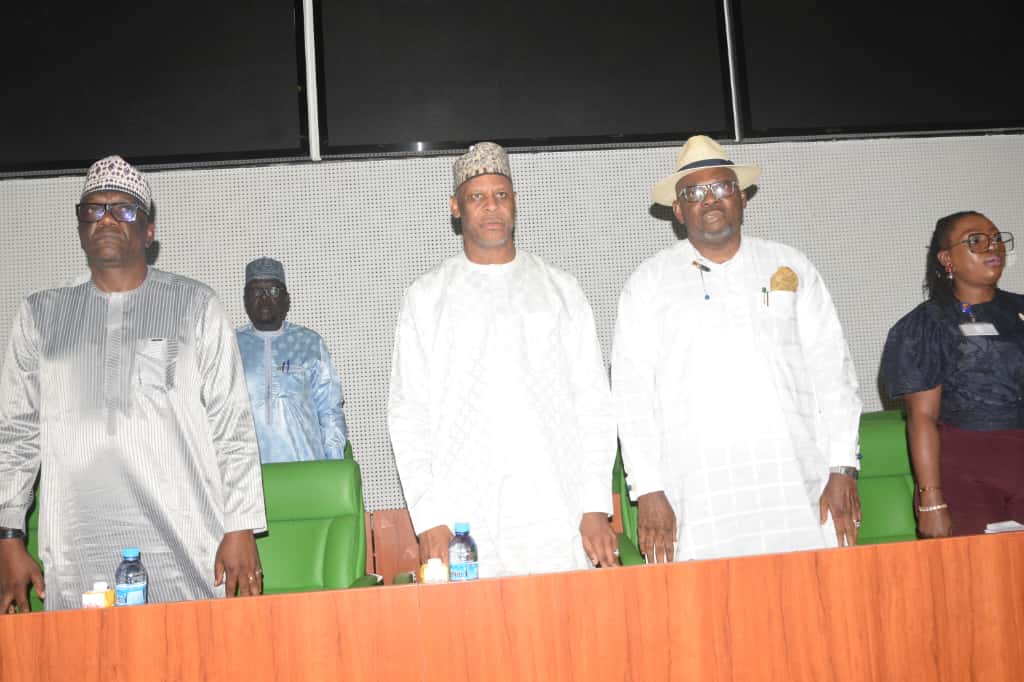The House of Representatives has reaffirmed its commitment to investigate how funds meant for oil spill clean-up in the Niger Delta were spent

The House of Representatives ad-hoc committee investigating the management of oil spill clean-up funds in the Niger Delta has reaffirmed its commitment to ensuring transparency, accountability, and justice in the handling of funds meant for environmental remediation in the region.
Chairman of the committee, Rep. Okpolupm Etteh (PDP Akwa Ibom), gave the assurance during an investigative hearing held on Thursday in Abuja.
He explained that the investigation seeks to uncover the truth behind the utilisation of funds allocated for the Hydrocarbon Pollution Remediation Project (HYPREP) and other related interventions, to ensure that affected communities receive the relief and restitution they deserve.
“The House has mandated this committee to investigate the management of oil spill clean-up funds. Our goal is clear to uncover the truth,” Rep. Etteh stated.
“We will scrutinise project implementation, procurement processes, training programmes, intelligence coordination, and the actual delivery of remediation and restitution to Niger Delta communities.”
Etteh noted that the probe would also assess the performance of regulatory agencies, the transparency of contract awards, and the progress of remediation projects already funded by the federal government and its partners.
“When monitoring and verification reveal gaps, delays, or irregularities, the committee will not hesitate to identify those responsible and recommend corrective measures. This is about ensuring that funds meant for environmental recovery are used effectively for the people who have suffered the most,” he added.
The chairman further assured that all committee proceedings would be properly documented for accountability purposes, while witnesses appearing before it must provide truthful testimonies and original evidence of work done.
He also urged government agencies involved in the clean-up process to fully cooperate by submitting all relevant documents promptly.
“These agencies include HYPREP, the Nigerian Upstream Petroleum Regulatory Commission (NUPRC), the National Oil Spill Detection and Response Agency (NOSDRA), the Federal Ministry of Finance, and other related institutions,” he said.
Etteh commended civil society organisations, community representatives, and technical partners for their continued advocacy and support toward achieving environmental justice in the Niger Delta. He also assured that the committee would protect whistleblowers and individuals who provide sensitive information in good faith.
“Let me be clear this is not a political theatre or a public show. It is a rigorous, evidence-driven inquiry aimed at restoring accountability, recovering misapplied public funds, addressing institutional failures, and ensuring that real remediation reaches our communities,” he declared.
Speaking at the session, Speaker of the House, Rep. Tajudeen Abbas, reiterated the commitment of the legislature to ensuring that public funds are judiciously utilised for the benefit of all Nigerians.
“Our parliament conducts legislative activities to ensure that public funds are not only spent but spent efficiently for the good of all.
“This investigation will help us determine who manages these funds, how they are applied, which communities are to benefit, and whether transparency and accountability were maintained throughout the process,” Abbas stated.
Represented by the Chief Whip, Rep. Usman Bello Kumo, the Speaker emphasised that the investigation was not intended to witch-hunt any institution or individual but to strengthen governance processes and prevent future mismanagement of public resources.
“We appeal to the agencies concerned to appear before this committee with the necessary information and evidence that will help the committee make fair, balanced, and just recommendations,” Rep. Kumo said.
He charged members of the committee to discharge their mandate with diligence, fairness, and professionalism, guided by the national interest and the welfare of the people of the Niger Delta.
The speaker also called for improved coordination between federal agencies and community-based organisations to ensure that the clean-up projects deliver tangible benefits to the people, including job creation, improved livelihoods, and the restoration of the ecosystem.
About Ogoni clean-up fund
The Ogoni clean-up fund was flag-off in 2016 with the establishment of the Hydrocarbon Pollution Remediation Project (HYPREP) as a project under the Nigerian Federal Ministry of Environment to implement the UNEP report on Ogoniland contamination. The fund earmarked initially for the clean-up was about $1 billion, as recommended by UNEP in 2011 for the first five years of remediation.

